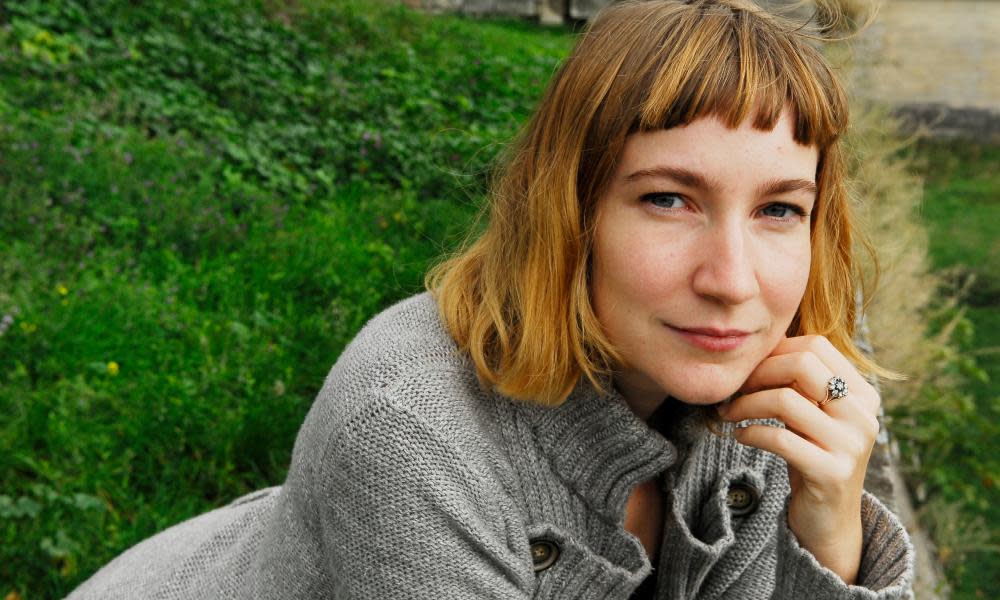Motherhood by Sheila Heti review – to breed or not to breed?

In all the literature about motherhood – enthusiastic, anxious, joyfully fecund, heartbreakingly infertile – there remains very little about voluntary childlessness. This is so much the case that the decision not to have children may now be more of a taboo than maternal ambivalence. There was Selfish, Shallow and Self-Absorbed, an essay collection edited by Meghan Daum in 2015, and there are a few self-help books. But now Sheila Heti’s book seems likely to become the defining literary work on the subject, perhaps most of all because as a novel, replete with ambiguity and contradiction, it refuses to define anything, and certainly not the childlessness that provides its subject or the motherhood that provides its title.
On the eve of her 37th birthday, Heti’s narrator, who may or may not be Heti herself, asks, fearfully, whether she wants to have a child. The circumstances for procreation are unpropitious: she is impecunious, divorced and committed to her writing. But she’s in a relationship with Miles, a man she loves; she likes the idea of opening herself to the peculiar magic of pregnancy and childbirth. Beneath it all lies a worry that childrearing might prove an anticlimax, and a belief that motherhood is a “once necessary, now sentimental gesture”. So, preoccupied by these questions, she decides to document her quest by creating a work of art that might outweigh her need for a child. She structures the process through a series of dialogues with three coins, which give yes and no answers as in the ancient Chinese system of divination.
The quest lasts three years, until she’s 40, and turns out to be a journey less towards childlessness than towards enlightenment. The narrator begins with a phrase lodged insistently in her mind: “the soul of time”. She isn’t sure whether this collective soul “belongs to time or is time” or whether “our lives – we – are time’s soul”. The answer emerges as both, the goal to enter into dialogue with the eternal. We use children, she suggests, to distract ourselves from our spiritual deficiencies. Therefore the apparent failure of childlessness can be a way of impelling ourselves into a battle to “erase the boundary between the spiritual and the physical, and finally become whole”, which is figured here as Jacob wrestling with the angel in Genesis.
Conversations, arguments and sex with Miles provide most of the daily life of the book
This narrative of spiritual growth is interwoven with a more overtly feminist narrative in which she considers the place of children and childbearing within our culture. She is angry about the over-validation of motherhood and the sense that women’s bodies belong to everybody but themselves. “There is something threatening about a woman who is not occupied with children … What sort of trouble will she make?” At one stage she contemplates giving the money she would have spent on childrearing to an abortion charity.
This sounds hard-hitting, and it is, but it’s also deeply ambivalent, woven as one strand among many in a book that does, after all, claim to be a novel. Perhaps it’s most novelistic in its dextrous use of the present tense (there is a sense of a life unfolding, rather than being recorded) and in the sense, gradually built up, that the book knows more than the narrator does, in her fear and rage and naivety. The most novelistic scenes are those that portray the relationship with Miles, and it’s here that the various strands of the book converge. Conversations, arguments and sex with him provide most of the daily life of the book.
The struggle is to bring this relationship, too, into the eternal. Miles frustrates her with his patience and certainty; he has a child already, and is satisfied with their coupling as it is, so he doesn’t wish to have a child with her. The narrator is more impatient and wilful, and is anxious that his not wanting a child is a sign of loving her insufficiently. She comes to consider the possibility that his finding her enough may be itself a demonstration of love: “I wondered if his not needing me to be a mother revealed a deeper respect for me and for women than even I had.”
The move towards the soul of time, or towards an acceptance of her place within it, is enabled by art and by a reckoning with its place in her life. There’s a moving passage where the narrator sees the writers who have formed her as pulling her backward into the literary past of her forebears, whereas motherhood pushes you into the future of your children. This is a reminder that she has her own genealogy as well as her own literary fecundity.
She is asking what her book can count for, and the answer is a lot. It’s hard to do justice to its complexity. This is less a book than a tapestry – a finely wrought work of delicate art. Is it worth as much as a child? Is it worth less? Or more? “The childless and the mothers are equivalent,” the narrator learns. “A person who can’t understand why someone doesn’t want children only has to locate their feelings for children, and imagine that desire directed somewhere else – to a life that is just as filled with hope, purpose, futurity and care.”
Lara Feigel is the author of Free Woman: Life, Liberation and Doris Lessing (Bloomsbury).
• Motherhood is published by Harvill Secker. To order a copy for £14.44 (RRP £16.99) go to guardianbookshop.com or call 0330 333 6846. Free UK p&p over £10, online orders only. Phone orders min p&p of £1.99.


